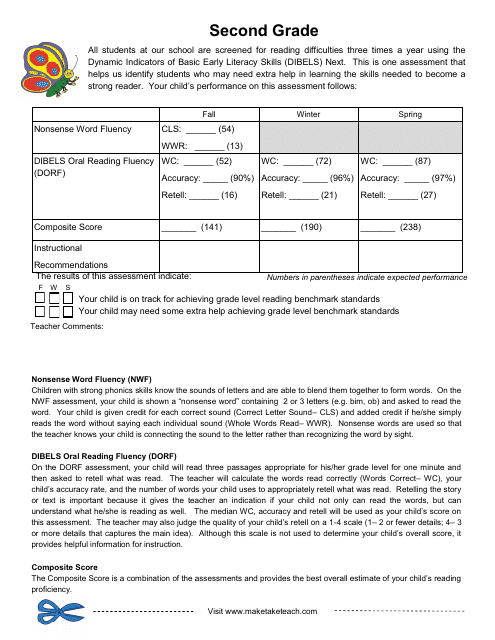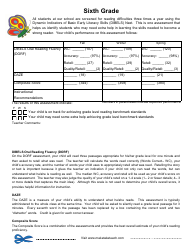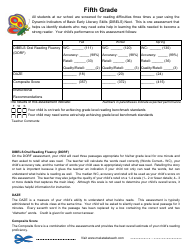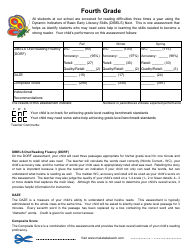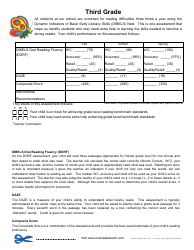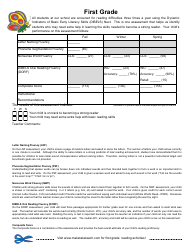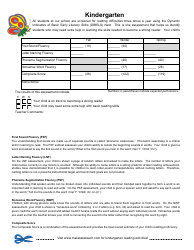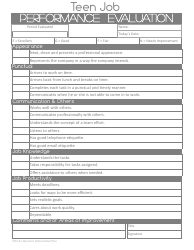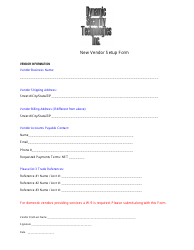Dynamic Indicators of Basic Early Literacy Skills Assessment Form - Second Grade
The Dynamic Indicators of Basic Early Literacy Skills Assessment Form - Second Grade is used to measure a student's reading skills and determine their proficiency level in second grade.
The Dynamic Indicators of Basic Early LiteracySkills Assessment Form for second grade is typically filed by the student's teacher or school administration.
FAQ
Q: What is the Dynamic Indicators of Basic Early Literacy Skills (DIBELS) Assessment?
A: The DIBELS Assessment is a tool used to measure early literacy skills in children.
Q: What grade level is the DIBELS Assessment designed for?
A: The DIBELS Assessment is designed for children in second grade.
Q: What does the DIBELS Assessment measure?
A: The DIBELS Assessment measures various aspects of early literacy skills, such as phonemic awareness, phonics, fluency, vocabulary, and comprehension.
Q: Why is the DIBELS Assessment important?
A: The DIBELS Assessment helps identify students who may be at risk for reading difficulties and allows for targeted interventions to support their literacy development.
Q: How is the DIBELS Assessment administered?
A: The DIBELS Assessment is typically administered individually or in small groups by teachers or trained educators.
Q: What are some examples of the skills assessed in the DIBELS Assessment?
A: Some examples of skills assessed in the DIBELS Assessment include letter naming fluency, phoneme segmentation fluency, and oral reading fluency.
Q: Is the DIBELS Assessment mandatory?
A: The DIBELS Assessment is not mandatory nationwide, but it may be required or recommended by some school districts or states.
Q: Can parents access the results of the DIBELS Assessment?
A: Parents can usually request access to their child's DIBELS Assessment results from their school or teacher.
Q: Can the DIBELS Assessment be used for progress monitoring?
A: Yes, the DIBELS Assessment can be used for progress monitoring to track a student's growth in early literacy skills over time.
Q: Are there any resources available to help with the DIBELS Assessment?
A: Yes, there are various resources available, such as training materials and guides, to support educators in administering and interpreting the DIBELS Assessment.
